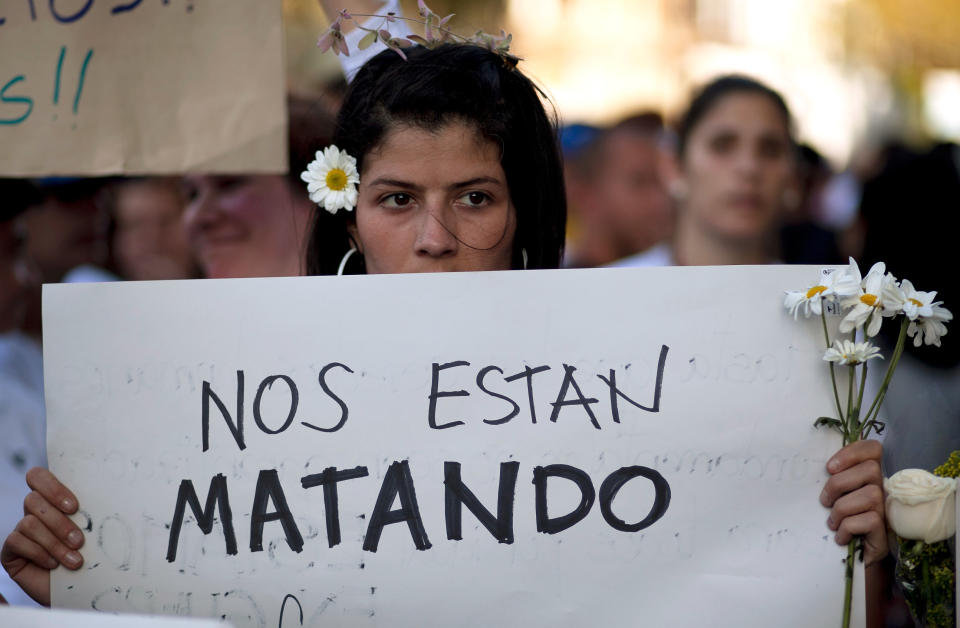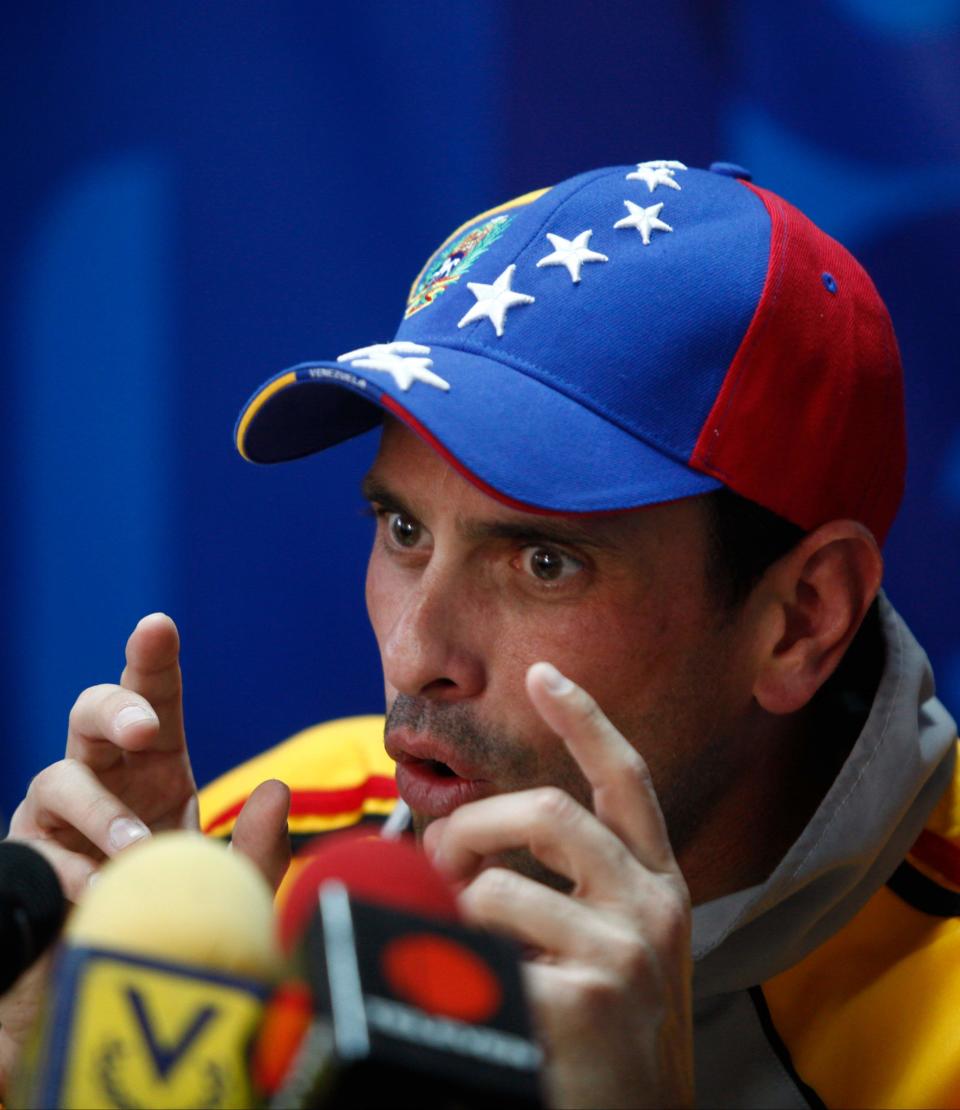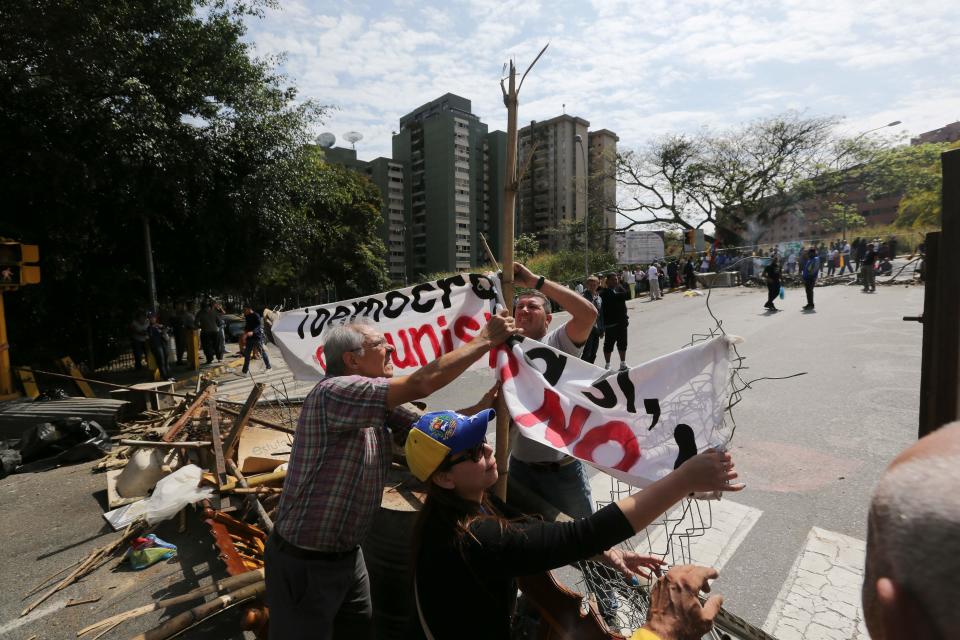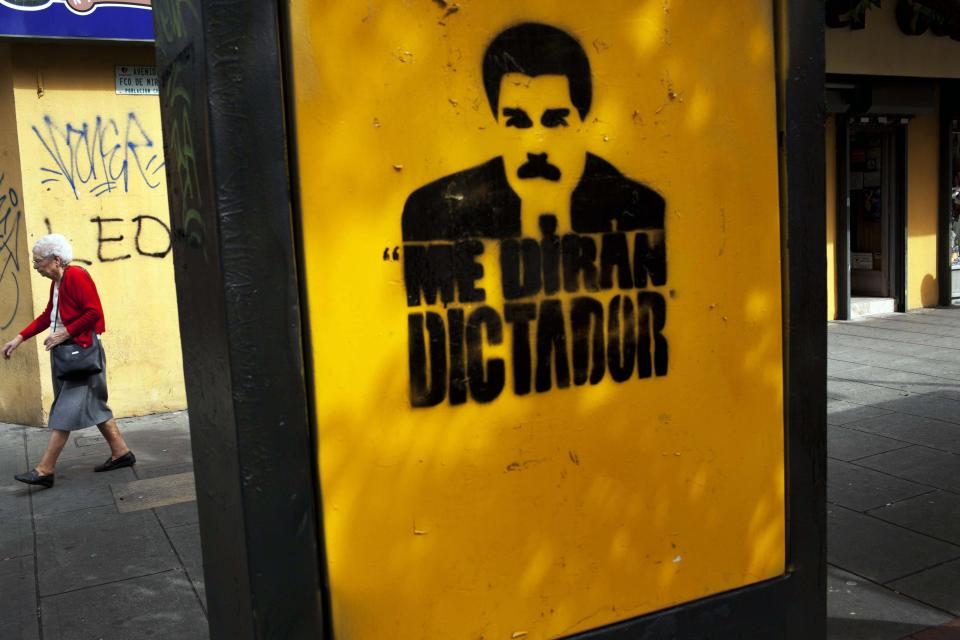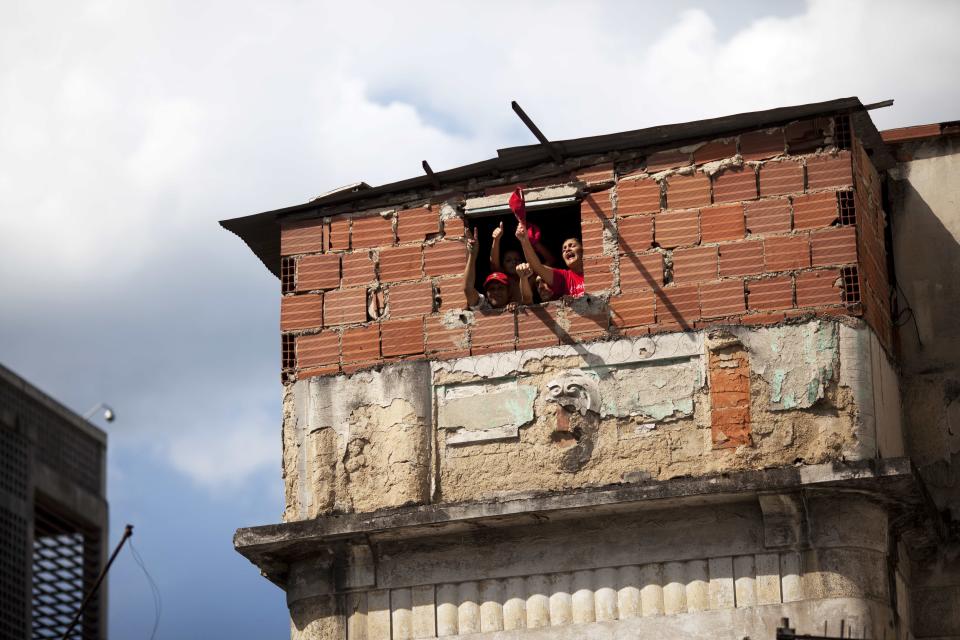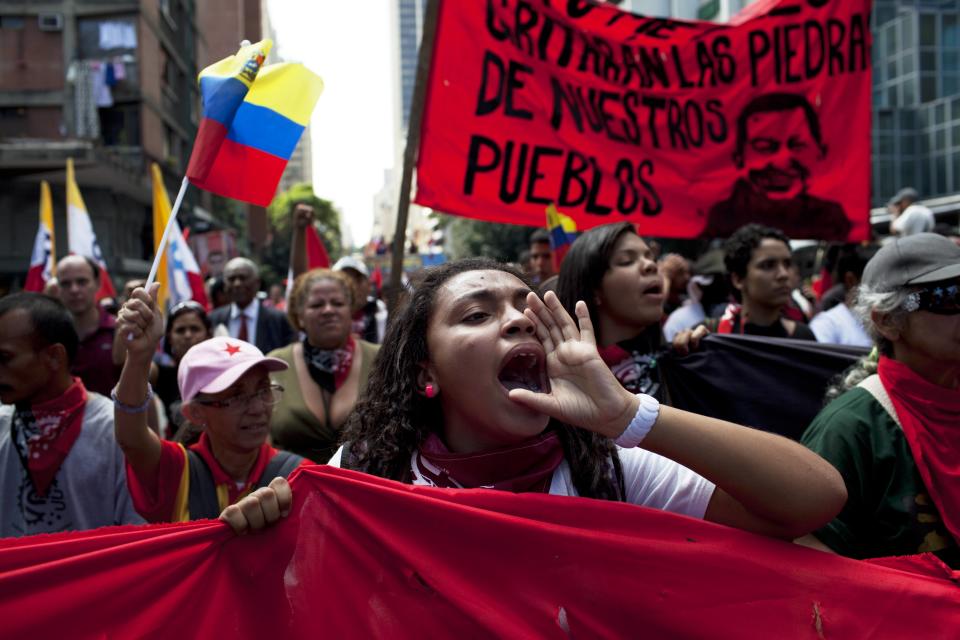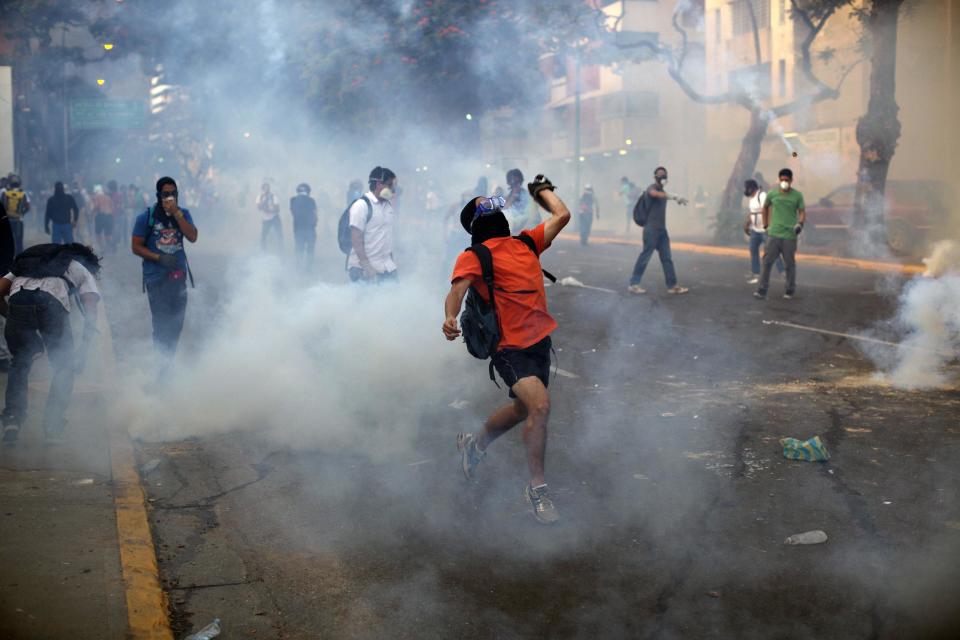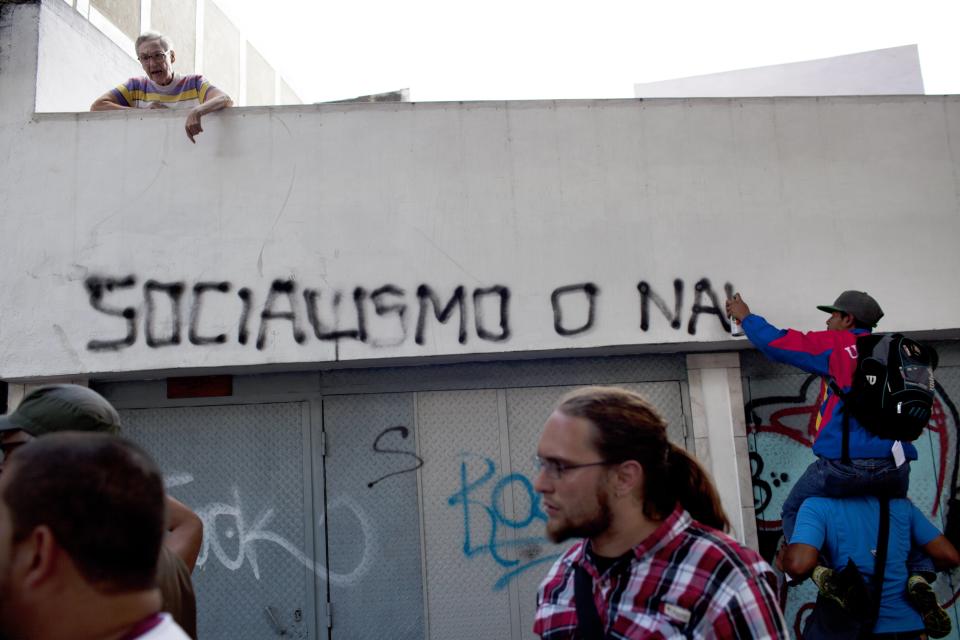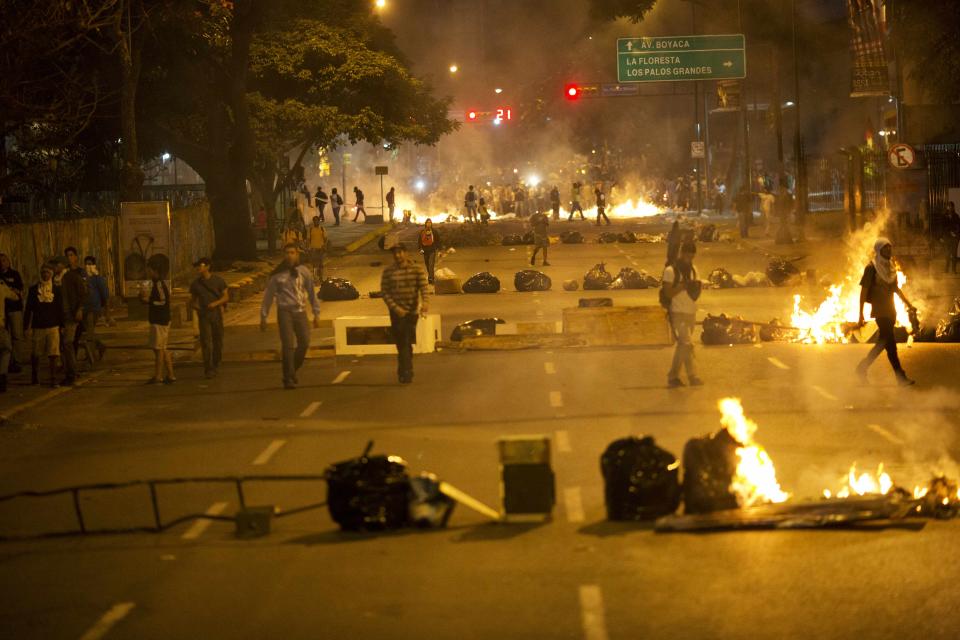Venezuela opposition denounces 'brutal repression'
CARACAS, Venezuela (AP) — The Venezuelan military planned to send additional troops to a border region where unrest has been particularly fierce, officials said Thursday, as the government faced growing criticism for its heavy-handed attempt to subdue a protest movement with nighttime sweeps that have turned many parts of the country into dangerous free-fire zones.
Interior Minister Miguel Rodriguez Torres said a battalion of paratroopers would be dispatched to the state of Tachira, on the western border with Colombia, where protesters have clashed with police and National Guard units, bringing the capital city, San Cristobal, to a halt.
"These units will enable the city to function, so food can get in, so people can go about their normal lives," Rodriguez said. "It's simply meant to restore order."
Members of the opposition have charged that the government of President Nicolas Maduro is leaning too heavily on the military as well as police and civilian militias to squash opposition to his socialist government.
San Cristobal Vice Mayor Sergio Vergara, a member of the opposition, said the government had already cut off vital services, including public transportation and the Internet, to crack down on what had been peaceful protests against a government of a country that is rich in oil but struggling with inflation above 56 percent and one of the highest homicide rates in the world.
The presence of some 3,000 troops in a city of 600,000, Vergara said, is "effectively part of an effort at repression being played out by the government across the country."
Violence has been escalating across Venezuela since a Feb. 12 opposition rally that turned violent and left three people dead. Since then, there have been at least three more deaths as well as dozens of injuries and arrests.
Police, National Guard troops and members of private militias have swarmed through streets in the capital and elsewhere firing volleys, at times indiscriminately, in repeated spasms of nighttime violence in recent days.
Henrique Capriles, the two-time presidential candidate of an opposition coalition, said the government has engaged in "brutal repression" as it goes after students and other protesters, in some cases breaking into apartment buildings to arrest those it accuses of taking part in an attempted coup.
"What does the government want, a civil war?" Capriles asked at a news conference.
David Smolansky, an opposition mayor of a district in Caracas, said the country is passing through the harshest wave of political persecution in decades with the response to the protests and the jailing of opposition leader Leopoldo Lopez. "If this isn't a totalitarian system then I don't know what can explain what is happening in this country," Smolansky said.
While several large demonstrations by thousands of people have been peaceful, smaller groups of protesters have lobbed gas bombs and rocks and blocked streets with flaming barricades of trash. Troops and police have responded with tear gas, rubber bullets and blasts from water cannons — as well as raids by gun-firing men on motorcycle.
Jose Leon, a 20-year-old business student who took part in a demonstration in the Altamira neighborhood of Caracas on Wednesday night, said authorities who roughly detained students and fired tear gas over-reacted to a peaceful protest.
"We've spent years trying for peaceful dialogue. How can you talk with a government that hunts down its own citizens like criminals?" Leon said as he took part in a small protest Thursday.
The clashes with authorities as well as the pursuit of anti-government activists by troops and militias take place in darkness. During the day, the capital has largely operated as normal, with businesses and schools open and people going about their business, while stocking up on groceries in case of further unrest.
President Maduro and his supporters say the escalating protests against his socialist government in the oil-rich but economically struggling country are part of an attempted coup sponsored by right-wing and "fascist" opponents in Venezuela and abroad, particularly the United States.
Maduro has vowed to crack down on the protests, particularly in Tachira, where the unrest has been particularly strong. The interior ministry said Thursday it would send a battalion of paratroopers there to the area restore order.
Earlier Thursday, a judge ruled there was enough evidence to detain Lopez, the opposition leader who surrendered to authorities a day earlier, on charges that include arson and criminal incitement stemming from a massive Feb. 12 rally.
Prosecutors decided not to pursue more serious charges, including homicide and terrorism at a court appearance on a military base outside Caracas. The 42-year-old politician could face at least 10 years in prison.
In a message from his Twitter account, the opposition leader's wife, Lilian Tintori, urged his followers on as she announced the court decision. "Change is within us all," she wrote on his behalf. "Don't give up. I will not."
The opposition is planning marches across the country Saturday to protest the jailing of Lopez as well as the rampant crime, shortages of consumer goods and inflation rate of more than 50 percent that has made life difficult for many in the country of nearly 30 million people.
___
Associated Press writers Fabiola Sanchez and Andrew Rosati in Caracas and Vivian Sequera in Bogota, Colombia, contributed to this report.
